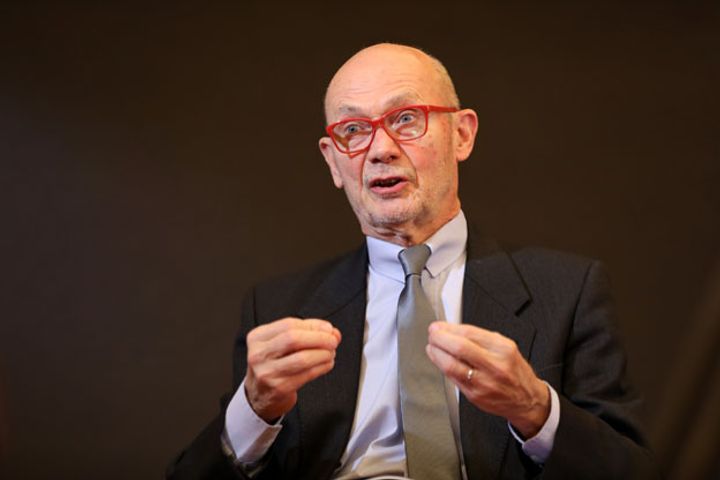 Trump's Protectionism Is a Testing Time for WTO, Globalization, Ex-Chief Lamy Says
Trump's Protectionism Is a Testing Time for WTO, Globalization, Ex-Chief Lamy Says(Yicai Global) Dec. 20 -- The World Trade Organization and globalization are facing their most difficult period amid US President Donald Trump's protectionist push, according to the former head of the organization.
The slump in global economic growth has caused a serious imbalance and the rise of trade protectionism and populism call into question long-held views on open trade, Pascal Lamy said during a master class at the China Europe International Business School in Shanghai.
The 71-year-old served as the WTO's director-general from 2005 to 2013. He witnessed first-hand China's accession to the trade body in 2001 during his time as European Commissioner for Trade.
"The 23 years of the WTO are facing rigorous challenges," he told Yicai Global in an exclusive interview. "It is the most difficult time for the WTO."
Even at the time of the General Agreement on Tariffs and Trade, the predecessor to the WTO, there had been a broad consensus that open trade was a mutually beneficial game and it advanced the economic development of all countries, he said when recalling his time as director-general.
However, "the engine for open trade has lost its power," he said. Technological innovation had promoted the expansion of trade, but now it brings undeniable problems. For example, acquisition, protection and management of data in an era of digitalization now deserves our attention, he added.
Trump continues to maintain the 'America First' stance while open trade is under threat. He has previously told the media that the WTO has acted in an unfriendly manner to the US for years and has to make changes.
"Trump prefers bilateralism or even unilateralism to multilateralism," Lamy said. "The world needs a multilateral trading system and the WTO-plus mode (both regional and bilateral)."
"Most issues, such as upholding open trade, subsidies and intellectual property protection can be solved bilaterally," he said, adding that other key matters involving principles and rules can only be resolved through multilateral means.
"I am a loyal supporter of multilateralism, I believe rules are important," Lamy added.
Trump's Threat
He remains worried about Trump's threat to withdraw from the WTO. "Trump is not a rule-based president, he wants to withdraw from the WTO today, and maybe on some other day he will expect more countries to play an important role," Lamy said. "No matter what Trump will do, I know from my experience that we must try to keep the US in the WTO."
Lamy firmly believes that the WTO will play a permanent role in the fight against trade protectionism. "I don't think that the WTO will suffer significant risks regarding exclusion or even abandonment," he stated. "The WTO is very much needed in the globalized world we have now."
Only reform can defend the position of the WTO in safeguarding open trade, Lamy says while also acknowledging that the organization is using an outdated rule book from 1994 and does not "change with the times," especially when the digital economy, market access and intellectual property are constantly developing and challenging its authority in world trade.
Lamy is prudent and optimistic about the prospect of WTO reform. "The key to the reform is whether China, the US and Europe can reach a consensus," he said. "Globalization will not end because countries are dependent on each other and the integration of international systems in trade globalization are resilient, which can withstand any shocks from Trump."
While talking about rising trade tensions between the world's two economic powerhouses, he believes this is about more than just the bilateral trade balance.
"Most of the issues that oppose the US and China on trade are not bilateral issues," Lamy said. "It's not about buying a bit more Boeing, a bit more LNG or a bit more soya. They are multilateral issues. They are issues of a systemic nature."
That has not stopped the two countries from attempting to rebuild their trans-Pacific bridge. Following up on the three-month ceasefire, Chinese Vice-Premier Liu He, US Treasury Secretary Steven Mnuchin and US Trade Representative Robert Lighthizer talked over the phone on Dec. 11 to renew trade negotiations.
Whether or not the world's two biggest economies can come to agreeable terms remains to be seen, but Lamy believes the "crux of the matter lies" in how the G20 and other WTO nations choose to rebuild the organization.